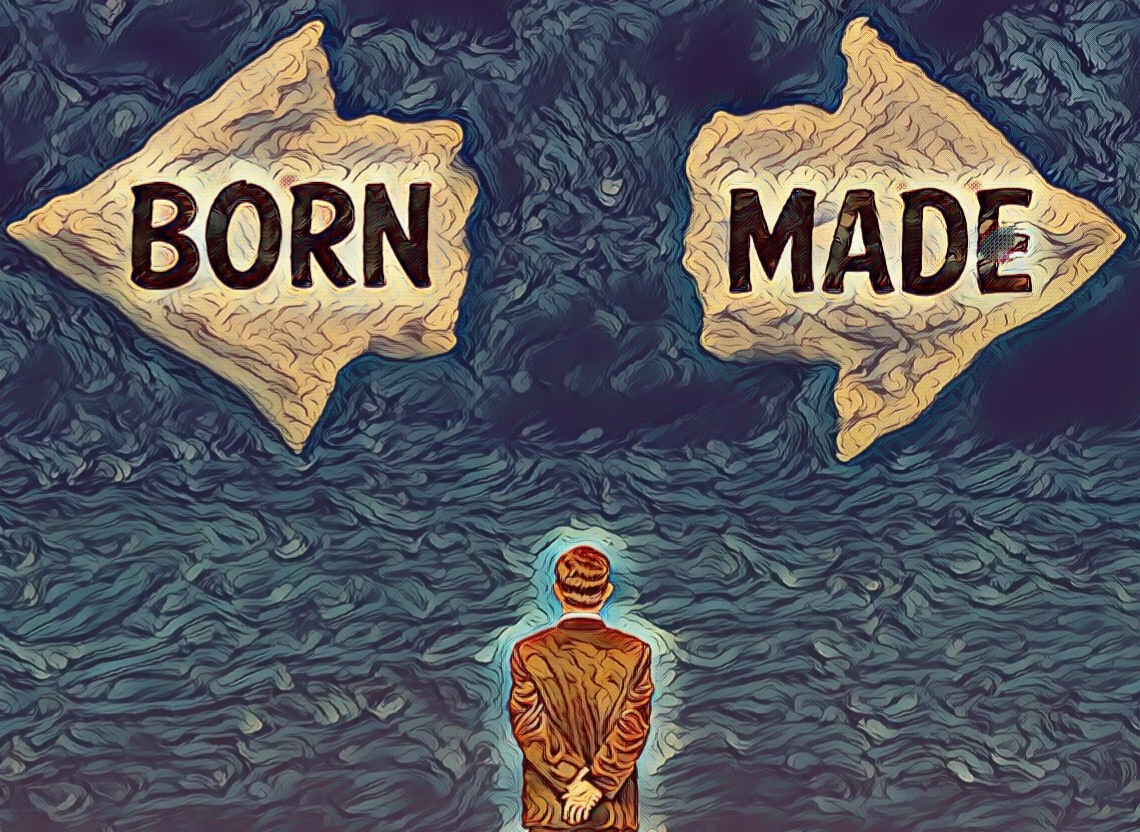
Αs sales managers or sales leaders do we let our salespeople to take up more responsibilities/decisions when they are able to, or do we keep telling ourselves that it is not the right time, as they are not ready yet?
Read more: Today’s Salespeople are Tomorrow’s Sales Leaders So Treat them Respectively

To be successful in Sales does someone just has to learn the fundamental components of this profession, or does he/she need to have “built-in” certain characteristics? In other words: Are good salespeople made or born?

As COVID-19 restrictions have already begun to ease out in most parts of the world, it is now much easier to travel and therefore meet with customers in-person, rather than just sit behind a screen, and have online meetings with them. This doesn’t mean that online sales meetings are or will soon be a thing of the past, as virtual selling not only in B2C, but also in B2B models, is here to stay.
It is without a doubt that real-time communication is one of the main benefits of online meetings, which is certainly an important factor in the modern business environment. For sure, it is not easy for every stakeholder to meet at one place for business meetings, especially for people that are not in the same country, so online conferences facilitate every person to interact without moving from one place to another and therefore significantly help organisations to save time and reduce operational costs.
All the above are surely important and add value in the sales process, but in my eyes, “traditional” in-person sales meetings are still the most effective way to do business. Meeting with prospects or existing customers face-to-face and building relationships in real-time can’t be easily replaced by any other form of communication. This conclusion derives mainly from my personal experience as a sales professional, all the way from starting as a first-line sales engineer some years ago and eventually becoming head of sales in the company that I work for.
In-person sales meetings apart from enhancing personal contact are also extremely valuable for salespeople in order to gain a better understanding and to more accurately assess the organisation of the customer by visiting their premises. The same also applies for the customer’s side when visiting the premises of a potential supplier. On top of that, face to face sales meetings is an excellent opportunity for the training and development of new members of sales teams and also an opportunity for sales managers to provide feedback on their people, when visiting customers together.
Undoubtedly, as sales professionals we need to follow and adjust to the current trends and use the technology, so as to become more efficient and productive. Nevertheless, we should remind ourselves that at the end of the day people buy from people, therefore in-person sales meetings will always be relevant as they can add value in several different ways.
Read more: Why In-Person Sales Meetings Should Not Become a Thing of the Past

It is without a doubt that nowadays organisations spend billions of euros every year for their activities in social media and their main justification for these investments is that by attracting more followers, they will eventually increase sales. On the other hand, in a relevant survey of 427 marketers at US companies showed that nearly 80% of them, are not able to quantify the value of their social media campaigns.

Nowadays, customer experience is more and more considered as one of the main differentiators across industries, but there has also been a large discussion with regards to what actually makes it great. For some, the answer is having an easy and frictionless journey, for others it is having a memorable experience that makes you go “wow!”. There is also a third view which says that you need to have both.


